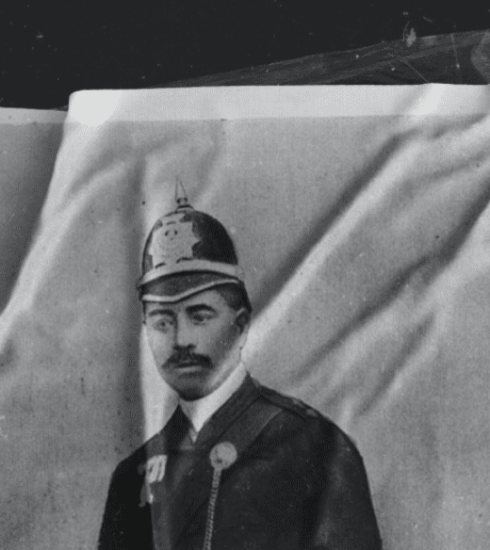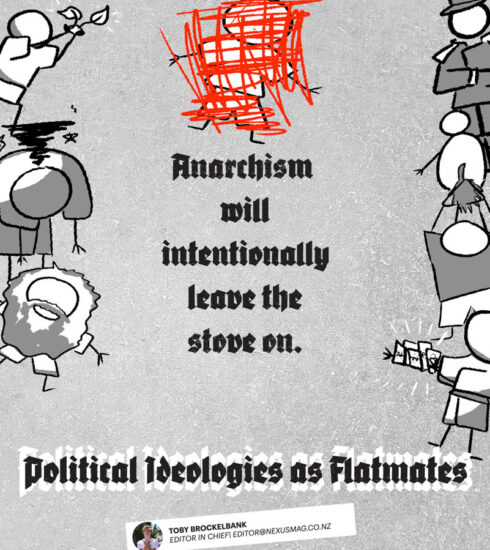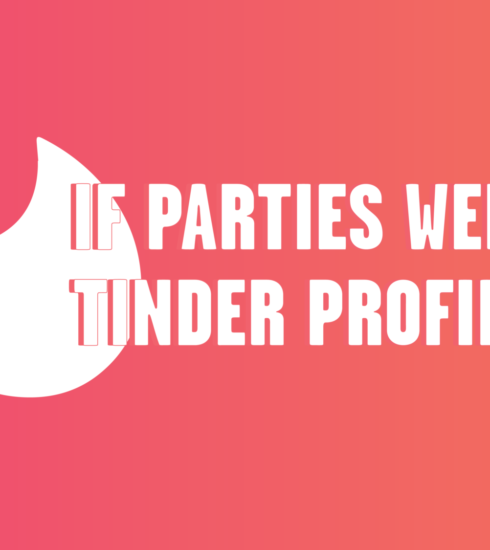Conversion Therapy Ban – Issue 19
Our parliament is currently considering the Conversion Practices Prohibition Legislation Bill, and now is the time that members of the public can have their say. You’ll have seen a call to action across your social media sites, as submissions are being accepted until 8 September 2021.
Before we delve into the Bill currently before Parliament, let’s take a step back and look at what Conversion Practices, also known as Conversion Therapy, actually are.
The word “therapy” comes from the Latin word “therapīa”, which can be literally translated to mean “healing”. Conversion therapy is not healing, it’s the exact opposite. Conversion therapy doesn’t heal or help – it harms.
What is Conversion Therapy?
Unfortunately, the archaic belief that sexual orientation or gender identity can be changed, and should be changed, is found around the world, and New Zealand is no exception. Those who believe, the medically false idea that these intrinsic pieces of identity are wrong and need to be fixed, or that someone is sick and needs to be cured, seek to do so by employing interventions that come under the broad term “Conversion Therapy”.
Whether conversion therapy comes from a religious organisation, a traditional healer, a mental healthcare provider, or other organisation, it causes harm. Despite this, conversion therapy is often encouraged or forced by family members, and community members; countries such as Malaysia even promote conversion therapy at a government level. Conversion therapy takes many forms, and in the past has included practices such as institutionalisation, castration, or electroconvulsive shock therapy. Today, conversion therapy more commonly takes place across three main approaches; psychotherapy, medical, or faith-based. In New Zealand, the psychotherapy approach is most commonly enacted, where individuals are told that their orientation is a mental illness and it’s a choice that needs to be changed.
Regardless of the form the conversion therapy takes, New Zealand Associate Minister of Health, Ayesha Verrall aptly states that “the problem with conversion therapy is just how awful the practice itself is. All people, but particularly young people, want to belong. Young people are forming their identity. Naturally, they want to be accepted. Conversion therapy is about trying to erase someone’s identity. It is about saying that part of you is defective and we want to root it out. Conversion therapy is coercive, because behind conversion therapy is a threat of exclusion: This part of you is wrong and you don’t belong.”
Conversion Therapy: It Does Not Work.
Ignoring, for a moment, the obvious fact that there is no place, and clearly no need for conversion therapy – it simply does not work. This is unequivocally emphasised by research in New Zealand and internationally. With the American Psychiatric Association stating in 2013 that no trustworthy “research evidence exists that any mental health intervention can reliably and safely change sexual orientation; nor, from a mental health perspective does sexual orientation needs to be changed.”
In short, conversion therapy is founded on baseless claims and achieves no purpose. No purpose, unless it’s intending to cause pain. Again, reputable international research shows that conversion therapy attempts are ineffective, harmful, and unethical, leading to “devastating lifelong consequences’. These consequences include low self-esteem, depression, anxiety, and suicidal thoughts and attempts.
A 2018 San Francisco State University study of 245 LGBT+ young adults found that those whose parents tried to change their sexual orientation were “more than double the rate of LGBT young adults who reported no conversion experiences”. The same study recorded that suicide attempts also skyrocketed, nearly tripling among young adults who reported intervention efforts to change their sexuality made either by their parents, therapists, or religious leaders. Again, depression was recorded at a far higher rate amongst LGBT+ teens who had experienced attempts to change their sexuality, compared to those who experienced no conversion experience. While this is just one study, similar results are found all over the world.
So failing to provide “healing”, by any definition of the word, conversion therapy has been found to inflict pain and suffering, as well as physical and psycholgical damage on those subject to it. Recently, the United Nations commissioned a report by Independent Expert recorded that conversion therapy practices “constitute an egregious violation of rights to bodily autonomy, health, and free expression of one’s sexual orientation and gender identity. When conducted forcibly, they also represent a breach to the prohibition of torture and ill-treatment.”
Published in 2020, this report explicity urged States to take urgent measures to protect children and young people from conversion therapy, and to foster dialogue around the violations of human rights that come from conversion therapy as well as the damage it causes. The report ultimately called for a global ban on conversion therapy.
New Zealand’s Conversion Practices Prohibition Legislation Bill.
Over a year after the UN Report was released, on 30 July 2021, Labour Party MP Kris Faafoi introduced to Parliament the Conversion Practices Prohibition Legislation Bill. The purpose of the proposed act is to prevent harm caused by conversion practices; and promote respectful and open discussions regarding sexuality and gender. The document’s Explanatory Note records that the bill is designed to affirm the dignity of all people, provide an avenue for redress, and to uphold the basic human right of all New Zealanders to live free from harm and discrimination.
In its current form, the Bill seeks to create two new criminal offences relating to those who continue to practice conversion therapy. If passed as a law, this legislation would make it a crime to practice conversion therapy on anyone under 18, or anyone who lacks the capacity to understand the decision in respect to their health or welfare, punishable by a maximum of 3 years imprisonment.
The first step for any Bill introduced into Parliament, is for a “First Reading” to be held. A First Reading is the first chance for a Bill to be debated in Parliament, and at the end of the debate politicians vote on whether it should progress along the path to becoming a law, or whether it should simply be dismissed. On 5 August 2021, the Conversion Practices Prohibition Legislation Bill was introduced by Labour MP Kris Faafoi. The first MP to speak on the Bill, Faafoi spoke to Parliament about how “long-lasting mental health impacts [of conversion therapy] have for far too long plagued our rainbow community. It is well-time that these conversion practices were banned”.
From there, other MPs had the chance to have their say, and heated debate ensued. Members of the Green Party, Te Paati Maori, ACT, Labour, and National all spoke, with Simon Bridges, for the National Party, standing up first to object to the Bill. He confirmed that National supports the core intention of this thought, and that “People should be free to be who they want to be” but voiced National’s refusal to support the Bill in its current form. This objection is based on a concern that parents may face “five years in prison” for “conversations and decisions about medical treatment and wellbeing that parents have and make with their children”. In Simon’s eyes, “this bill lacks common sense”. Other National Party MPs followed suit, reiterating that this issue standing in their way “is the question of the prosecution of parents.” From the discussion, it appears that the National Party is concerned that parents may be prosecuted for discussing matters of sexual or gender identity with their children.
ACT Party members expressed similar concerns, however, voted in favour of the Bill, with Nicole McKee standing up to say that “The ACT Party supports this bill through its first reading, and we hope that through the select committee process, the concerns we have raised can be satisfactorily addressed. Therefore, we support this bill to select committee.”
By the time the end of the reading rolled around (not before the Assistant Speaker of the House had to call “Order!” more than 5 times, and Chlöe Swarbrick sassed Louise Upston at least once) a Party vote was called, on whether the Bill should progress. The Green Party, Te Pāti Māori, ACT, and Labour all voted for progressing this Bill. Voting against the Bill, alone, was the National Party. A total of 87 to 33 votes, in favour of progression.
The Bill has progressed to the next stage, and is now being considered by the Select Committee.
Where To From Here?
The Select Committee has six months to now investigate thoroughly the Conversion Practices Prohibition Legislation Bill, and formalise a report addressing any issues that have been identified, or recommendations.
Right now, until 8 September 2021, the Select Committee is accepting public submissions on the Conversion Practices Prohibition Legislation Bill. This means that you can make your voice heard, and put your thoughts to the Committee – your view is vital, and can ultimately form part of the Select Committee Report. To make a submission please visit www.parliament.nz/en/pb/sc/make-a-submission/ and click on Conversion Practices Prohibition Legislation Bill.
As well as considering written submissions, part of the Select Committee’s information gathering will also see them hold a public hearing, where members of the public can speak directly to the Committee, and present their thoughts in person.
At the conclusion of the six-month period, the Committee will present their Report, to be considered in Parliament at the “Second Reading”. From there, further debate will occur, seeing the Bill either progress further through Parliament on it’s way to becoming law, or being dismissed.
So…
Conversion therapy is nothing short of abhorent. It’s been condemned by the United Nations, and over 20,000 New Zealanders signed a petition calling for it to be banned before the Conversion Practices Prohibition Legislation Bill was even introduced. It causes nothing but harm and distress to those impacted by it. Yet, it’s currently legal to practice conversion therapy in New Zealand, and that’s abhorent too.
With the Bill before Parliament’s Select Committee at present, we now have an opportunity to move forward, and create some meaningful change. Your submission is part of this, and we urge you to have your say, and make your voice heard on this crucial issue. Now’s your time to think – think about the basic human right all New Zealanders are legally afforded, the right to live free from discrimination, but also think about the basic right we all should have to be loved for who we are. As Louisa Wall, Labour MP voiced at the First Reading: “At the heart of this [Bill] is our children and them knowing that they are perfect as they are, that they are loved, and that we as a society will value them and not let any harm happen to them in their exploration and their expression of who they are”.





